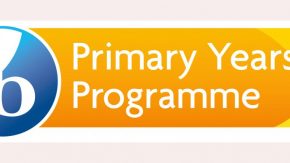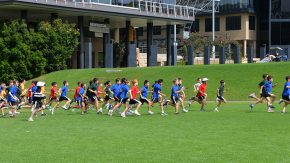A Message from the Head of Lindfield Campus
Mindset
For twenty years, my research has shown that the view you adopt of yourself profoundly affects the way you lead your life. – Carol Dweck
Last year the Lindfield teachers and many parents began looking at Carol Dweck’s research around Mindset. Her research has identified two mind states – fixed and growth mindset. A fixed mindset believes that intelligence, ability and success are fixed attributes that cannot be changed. A growth mindset realises that with effort, strategy and drive you can learn and improve in all areas of your life. We held parent workshops and had a year-long staff focus about developing a growth mindset with our boys and community.
The good news is that mindsets are changeable and the reality is that we all have a mixture of growth and fixed mindset. It all depends on the context, environment and our experiences. The question that really interests us is how to help our boys develop a growth mindset, especially those whose mindset may be quite fixed. The key with our students is changing the way they think about ability.
In an article in Educational Leadership, former teacher and principal Mark Jacobson talked about how these two mindsets permeated in schools and how we can try to address them.
The goal of students fortunate enough to have a “growth” mindset (Carol Dweck’s term) is to get smarter. If they’re having difficulty, they work on a better strategy. But the goal of students who have the “fixed” mindset is to look smart. For them, being in a classroom is like stepping onto a stage with all eyes on them. “Fixed-belief students concern themselves with their teacher’s every glance. They see the teacher not as a facilitator and resource for their learning but as a rewarder and punisher, as a judge and critic.” These students constantly ask themselves, “Am I good enough? Am I smart? Am I right? Did I make a mistake? How will others see me? Does my teacher like me?” said Jacobson.
“We always ask students to try,” he says, “especially when they believe something is really hard, however, for some students, ‘hard’ means ‘impossible.’” Here are his suggestions for getting boys to believe that effort really can make them smarter:
- Have boys rate how hard they are trying. Check in with your son, asking him to self-assess on a 10-point effort scale and push himself to try harder.
- Give better feedback. General praise like ‘Good work’ is ineffective, Feedback should be specific to the tasks or concepts being taught and reinforce incremental progress. ‘I like the way you’re developing your sentence starts and the effort you are putting in.’ is more effective.
- Ask questions that don’t have right/wrong answers. To foster deeper thinking we are trying to engage boys in learning, not quizzing them when we talk.
- Investigate mindsets with your son. As parents we should reflect on our own mindset and how it manifests itself in the way we react to challenge and learning.
Below is a list of easily accessible resources that are helpful for investigating Mindset further, the book itself is a very easy read and we have multiple copies in the library.
Resources
Mindset
https://www.youtube.com/watch?v=NWv1VdDeoRY
Khan Academy: You Can Learn Anything
https://www.youtube.com/watch?v=JC82Il2cjqA
Neuroplasticity
https://www.youtube.com/watch?v=ELpfYCZa87g
www.edudemic.com/growth-mindset-way-learn/
https://alexvermeer.com/why-your-mindset-important/
Dweck, C. S. (2006). Mindset: The new psychology of success. New York: Random House.
Jacobson, M. (2013) Afraid of Looking Dumb, Educational Leadership (Vol. 71, #1, p. 40-43)
Ben Barrington-Higgs – Head of Lindfield Campus






